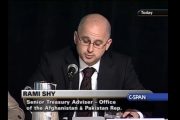
Legislators in North Carolina are pushing back against the transgender grooming of children as young as 2 years of age.
Both the House and Senate versions of the “Youth Health Protection Act” acknowledge that sex is “genetically encoded into a person at the moment of conception, and it cannot be changed.” The House and Senate bills are HB 808 and SB 639, respectively.
The bills would ban puberty blockers, cross-sex hormones, and other treatments for minors. They would also penalize heathcare professionals — including mental healthcare providers and counselors — with license revocation for practicing sex-change therapies or procedures on minors. In a state where it is illegal for those under age 18 to use a tanning bed, or to get a tattoo — even with parental permission — these bills are extremely important.
One vital aspect of the proposed legislation is that it includes protections for medical professionals who promote traditional values and discourage gender dysphoria.
Should a minor be injured by gender mutilation, the House bill stipulates, he or she can sue responsible providers until age 38.
Investigative journalist Sloan Rachmuth’s research, published at the Education First Alliance website, exposes gender transitioning for toddlers as young as 2 at top medical schools in North Carolina.
Last year, East Carolina University’s hospital system opened its LGBTQ+ Health Clinic within the school’s Department of Pediatrics. It now treats patients as young as 4 years of age.
So-called “transitioning” 3-year-old toddlers can look to the Gender Equity and Wellness Initiative Program at the University of North Carolina at Chapel Hill — infamous for its research collaborations with China’s Wuhan Institute of Virology.
Duke University School of Medicine has been similarly catering to 2-year-old toddlers since 2015, when it launched its Gender Clinic.
Dr. Deanna Atkins is a pediatric endocrinologist and director of child and adolescent gender care at Duke Health. In a recent panel discussion at Duke University, she explained the process of grooming used on pre-pubescent children in her treatments, and how schools help support her brand of therapy. You can hear her comments on this topic starting at 8:30 in the video below:
So for those kids who are pre-pubertal — no puberty has happened yet — there isn’t a need for any medical treatment. So primarily the care for those individuals focuses around social transition — changes in how they present themselves — to help improve their mental health. And that is an important part of what happens at the school as well, and can really help and decrease the likelihood that they’re going to have any issues at school.
Others ask whether parental consent for this promotion of gender dysphoria might fall under the classification of Munchausen syndrome by proxy.
Psychologist Dr. Max Wachtel explained that syndrome to Denver Colorado’s NBC affiliate, 9News:
It’s this really weird mental disorder where a parent — usually parents — will make their kid sick in order to get attention and to have their kid be put in the role of patient, and them be put in the role of parent-of-patient. You know, it’s different when somebody is faking an illness because they are trying to get out of trouble with the law or something like that. This is — they really want the attention that comes with having a sick kid.




